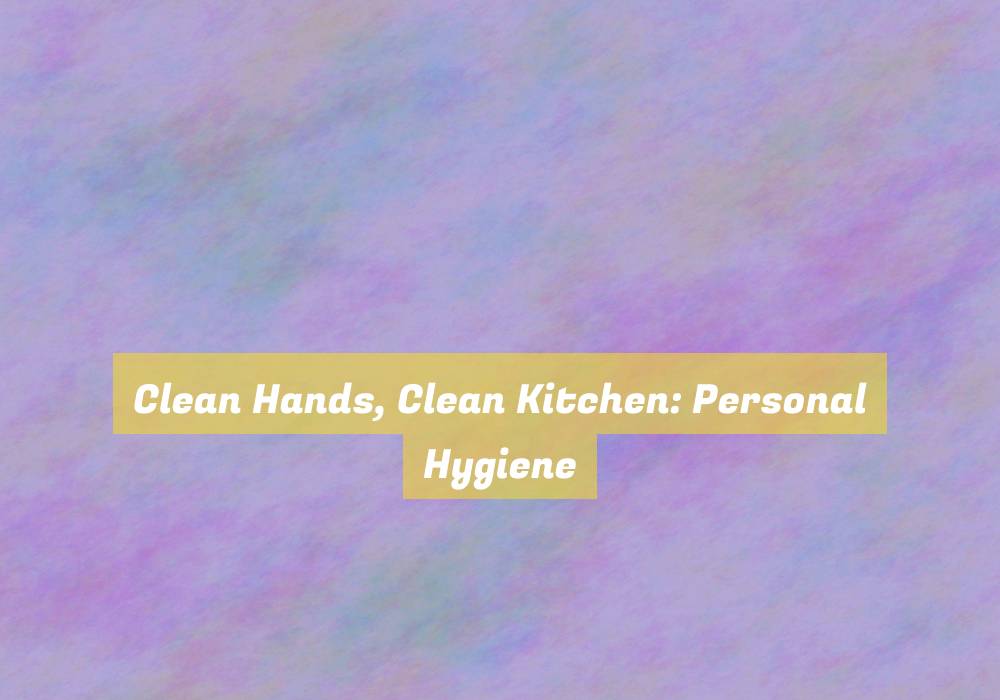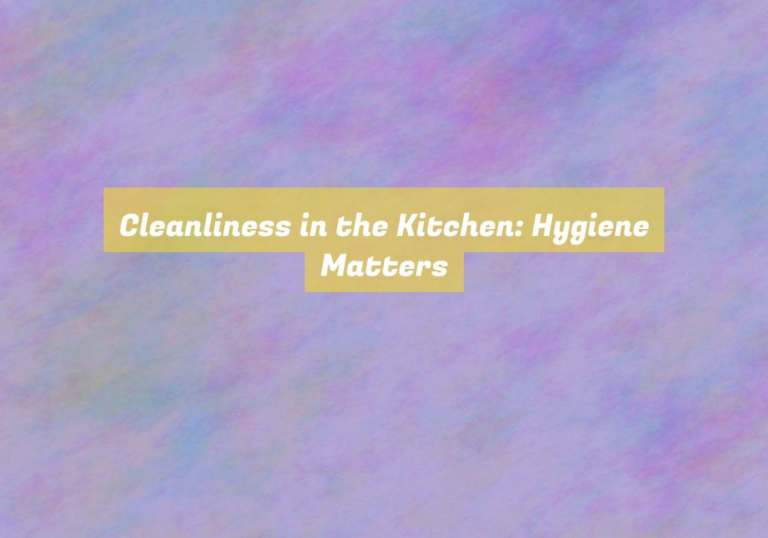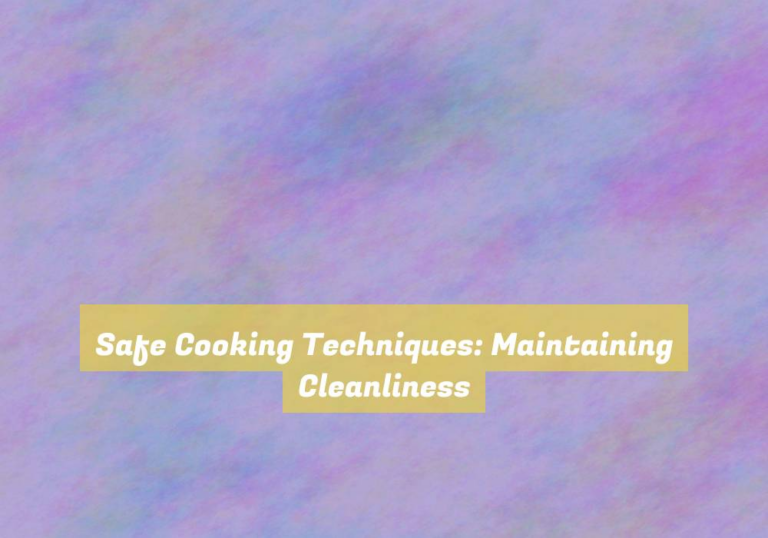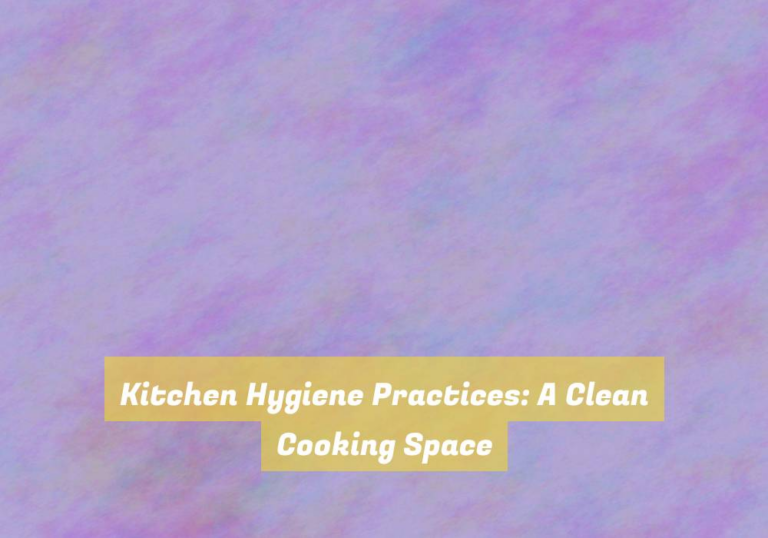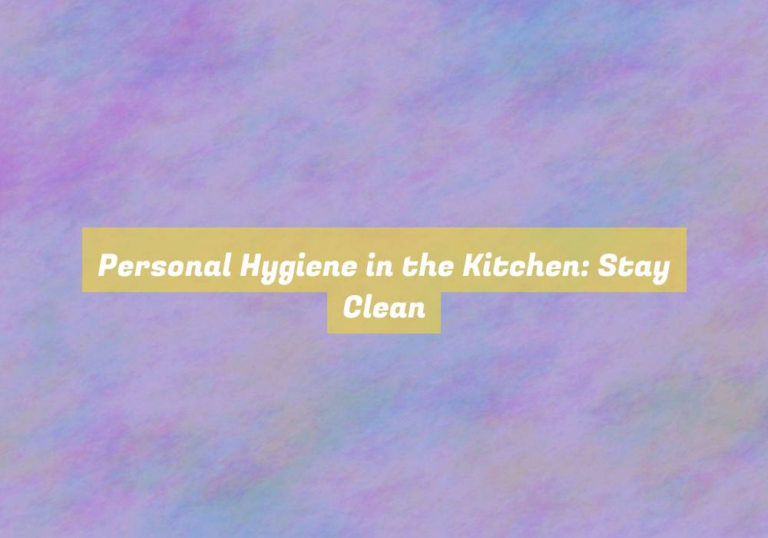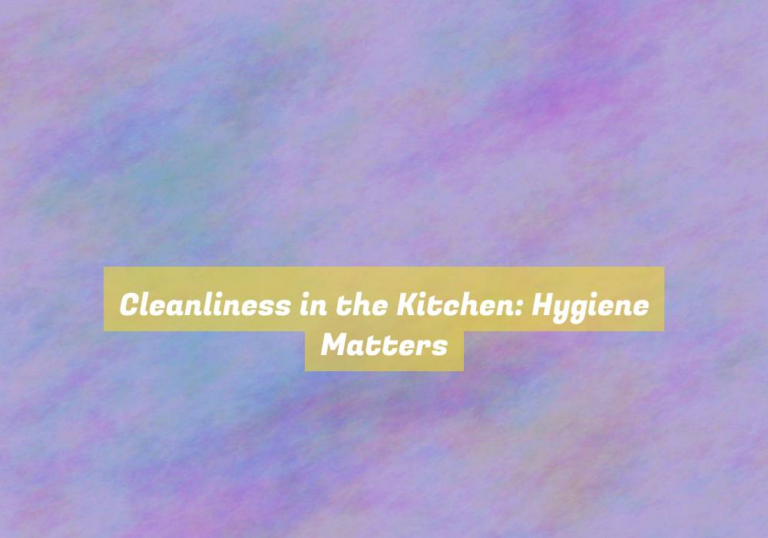Clean Hands, Clean Kitchen: Personal Hygiene
You know the importance of keeping your kitchen clean and organized, but what about maintaining personal hygiene while you cook and prepare food? ItG??s not just about washing your hands before and after handling food; itG??s about creating a safe and healthy environment for yourself and your loved ones.
Personal hygiene in the kitchen goes beyond just hand washing, and it plays a crucial role in preventing foodborne illnesses and maintaining a clean cooking space. So, what are the key practices and techniques that can help you achieve a hygienic kitchen and ensure the safety of your meals?
Importance of Personal Hygiene in the Kitchen
Maintaining proper personal hygiene in the kitchen is essential for preventing food contamination and ensuring the safety of your meals.
Washing your hands before handling food is crucial. Bacteria and germs can easily transfer from your hands to the food, leading to potential foodborne illnesses.
ItG??s also important to tie back long hair and avoid wearing jewelry while cooking to prevent them from falling into the food.
Regularly cleaning and sanitizing kitchen surfaces is another vital aspect of personal hygiene. Food particles left on countertops or cutting boards can harbor harmful bacteria, so be sure to clean these areas thoroughly after each use.
Additionally, ensuring that your cooking utensils and equipment are clean before use is essential in preventing cross-contamination.
Proper storage of food is equally important. Raw meats should be stored separately from other foods to prevent the spread of bacteria. Use separate cutting boards and utensils for raw meats to avoid cross-contamination.
Hand Washing Techniques for Food Safety
To ensure food safety and prevent contamination, start by mastering proper hand washing techniques in the kitchen.
First, wet your hands with clean, running water. Then, apply soap and lather your hands by rubbing them together. Pay special attention to the backs of your hands, between your fingers, and under your nails, as these areas are often missed.
Scrub your hands for at least 20 seconds. You can sing the G??Happy BirthdayG?? song twice to time yourself.
After scrubbing, rinse your hands well under clean, running water. Be sure to remove all the soap.
Finally, dry your hands using a clean towel or air dry them.
ItG??s crucial to wash your hands before handling food, after using the restroom, after touching raw meat, poultry, or eggs, and after touching garbage.
Maintaining Clean Clothing and Personal Grooming
Make sure your clothing is clean and your personal grooming is up to standard to maintain a hygienic environment in the kitchen. Always wear clean attire, including aprons, chef coats, and hats, to prevent food contamination. Regularly launder your kitchen clothes, especially after handling raw meat, to avoid spreading bacteria.
Additionally, keep your hair tied back and covered to prevent loose hairs from falling into food. When it comes to personal grooming, ensure your nails are short and clean to minimize the risk of harboring harmful bacteria. Avoid wearing jewelry on your hands and wrists to prevent cross-contamination.
Furthermore, maintain good personal hygiene by showering daily and using deodorant to prevent body odors from affecting food. ItG??s also important to avoid working in the kitchen when youG??re sick or have any open wounds to prevent the spread of illness.
Practical Tips for Hygienic Kitchen Practices
Wash your hands thoroughly with soap before and after handling any food products or utensils to maintain a high standard of kitchen hygiene. This is the most basic yet crucial step in preventing the spread of harmful bacteria.
Additionally, make it a habit to clean and sanitize kitchen surfaces regularly, especially after preparing raw meat, poultry, or seafood. Use hot, soapy water to wash cutting boards, countertops, and any utensils that come into contact with raw ingredients. Remember to change dishcloths and sponges frequently, as they can harbor bacteria if not properly maintained.
When storing food, ensure that raw and cooked items are kept separate to avoid cross-contamination. Use different cutting boards and utensils for raw meats and ready-to-eat foods.
ItG??s also important to keep your refrigerator at the right temperature (below 40-?F or 4-?C) to slow the growth of bacteria in perishable items. Regularly check the expiration dates of food products and promptly dispose of any items that have gone bad.
Conclusion
So, remember to always keep your hands clean and practice good personal hygiene in the kitchen.
By washing your hands properly, maintaining clean clothing, and practicing good grooming habits, you can help prevent the spread of harmful bacteria and keep your kitchen a safe and healthy environment for cooking and preparing food.
These simple steps can make a big difference in ensuring the safety and cleanliness of your kitchen.

